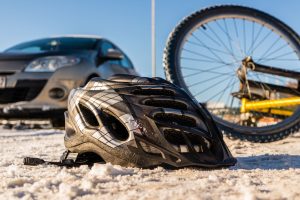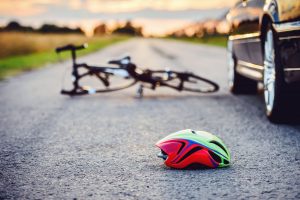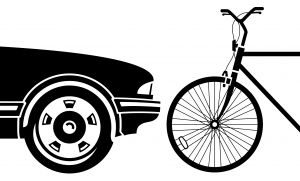Florida has the unenviable distinction of consistently having more reported bicycle deaths than anywhere else in America. It’s important to understand that if you’re injured or a loved one is killed in a bike-car crash that Fort Lauderdale bicycle accident lawsuits differ from other types of injury/wrongful death cases in a number of ways. 
For starters, cyclist injuries tend to be far more serious than what you’d typically see in a car crash. No matter who was at-fault, in a bicycle-car crash, it’s always going to be the bicyclist who suffers the most. As noted in the medical journal American Family Physician, the most common bike accident injuries are to the arms and legs (soft tissue injuries like road rash, bruises, and cuts, as well as strains, fractures, and dislocations). However, traumatic head and neck injuries – including skull fractures, intracranial hemorrhaging, and concussions – are cited in most serious bicycle accident cases.
Why does this matter for claims/litigation purposes? Because it raises the stakes. If you are pressured by an insurance adjuster into signing off on a claim settlement right away, you might do so before realizing your claim is worth a whole lot more. This is why it’s really important to talk to a Fort Lauderdale bicycle accident attorney before you sign anything. Even if you think you were at-fault, getting a professional opinion is important when so much is at stake.
Secondly, the laws governing bicycles is slightly different than the laws governing motor vehicles. True, bicyclists have many of the same rights and responsibilities as motor vehicle drivers, but not exactly the same. Bicycles aren’t allowed to be operated on certain roadways. Drivers passing bicyclists on the road must do so only when it’s safe and give them at least three feet of distance.
Another issue that can complicate bicycle accident claims is that cyclists aren’t required to carry insurance the way drivers are. Florida is a no-fault state for car insurance. That means that no matter who is at-fault, both parties are supposed to filer a claim with their own personal injury protection (PIP) insurer. This covers a portion of medical bills and lost wages, up to $10,000. One must sustain serious/permanent injuries to file a claim for bodily injury liability coverage against the other driver. If you are injured in a bicycle accident with a car and you have PIP coverage for the car you normally drive, you can likely file a PIP claim with your own insurer. Even though you weren’t driving, you were still in an auto accident. However, cyclists aren’t required to carry insurance, so not all have PIP. In that case, they can file a PIP claim with the other driver’s insurance company. Insurance filing deadlines for no-fault coverage tend to be short, so you need to take action immediately. An attorney can help you file all the correct paperwork – completely and on time.
If the other driver was at-fault (or at least, more at-fault than you) AND you suffered serious injuries, you can file an injury claim and/or lawsuit against them. If they do not have insurance, you may be able to collect damages from your own uninsured/underinsured motorist coverage carrier.
As an aside, if you are injured in a bicycle accident that did NOT involve a motor vehicle – you might still be entitled to collect damages. If there was a condition of the road, sidewalk, commercial property, or private home that caused/contributed to the severity of the crash, you might be able to file a claim with:
- The local/state government agency responsible for road maintenance.
- The commercial property owner/manager.
- The homeowner/homeowners’ insurance.
 Broward Injury Lawyer Blog
Broward Injury Lawyer Blog












